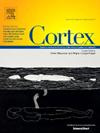Cardiac signals and the interference of reward on attention and inhibitory control
IF 3.3
2区 心理学
Q1 BEHAVIORAL SCIENCES
引用次数: 0
Abstract
Interoceptive responses can modulate cognition and behavior; discrete cardiac signals can shape emotional and motivational adaptation towards reward-related cues, but also affect response inhibition. Novel addiction perspectives posit an interoceptive basis for the interplay between substance-related reward processing and inhibitory control, but there is a lack of behavioral evidence for this relationship. In this registered report, we investigated whether reward cues modulate cardiac-facilitated attention and motor inhibition. Fifty social drinkers completed an attentional visual search task and two instances of a stop signal task, in which alcohol or neutral stimuli were presented as targets or distractors. Stimuli were presented in synchrony with participants’ cardiac phase (systole vs. diastole). This design allowed us to test whether cardiac signals amplify attentional biases in the presence of alcohol cues and influences inhibitory control. Overall, our results were predominantly null: alcohol cues did not produce significant attentional interference in any task, limiting conclusions about interoceptive modulation of cognitive abilities by cardiac phase. However, we replicated a previous finding that synchronizing stop signals at systole improved motor inhibition. This provides strong evidence that cardiac phase can facilitate inhibitory processes in the stop signal task. Although more sensitive paradigms are needed to clarify how cardiac rhythms interact with alcohol cues to influence attention and inhibition, our replication of systolic facilitation highlights the promise of cardiac cycle-based approaches in interoception research. Future studies may benefit from refining task design and considering craving states to more effectively capture the potential interoceptive influences on attention and inhibitory control.
心脏信号与奖赏对注意和抑制性控制的干扰
内感受反应可以调节认知和行为;离散的心脏信号可以塑造对奖励相关线索的情绪和动机适应,但也会影响反应抑制。新的成瘾观点假设了物质相关奖励处理和抑制控制之间相互作用的内感受基础,但缺乏这种关系的行为证据。在这篇已注册的报告中,我们调查了奖励线索是否调节心脏促进的注意力和运动抑制。50名社交饮酒者完成了一项注意力视觉搜索任务和两项停止信号任务,其中酒精或中性刺激作为目标或干扰物。刺激与参与者的心脏期(收缩期和舒张期)同步呈现。该设计允许我们测试心脏信号是否会在酒精提示下放大注意偏差并影响抑制控制。总的来说,我们的结果基本上是无效的:酒精提示在任何任务中都不会产生显著的注意干扰,限制了关于心相期认知能力的内感受性调节的结论。然而,我们重复了先前的发现,即在收缩期同步停止信号可改善运动抑制。这提供了强有力的证据,表明心相可以促进停止信号任务中的抑制过程。虽然需要更敏感的范式来阐明心律如何与酒精线索相互作用以影响注意力和抑制,但我们对收缩促进的复制强调了基于心脏周期的方法在内感受研究中的前景。未来的研究可能受益于改进任务设计和考虑渴望状态,以更有效地捕捉潜在的内感受性对注意和抑制控制的影响。
本文章由计算机程序翻译,如有差异,请以英文原文为准。
求助全文
约1分钟内获得全文
求助全文
来源期刊

Cortex
医学-行为科学
CiteScore
7.00
自引率
5.60%
发文量
250
审稿时长
74 days
期刊介绍:
CORTEX is an international journal devoted to the study of cognition and of the relationship between the nervous system and mental processes, particularly as these are reflected in the behaviour of patients with acquired brain lesions, normal volunteers, children with typical and atypical development, and in the activation of brain regions and systems as recorded by functional neuroimaging techniques. It was founded in 1964 by Ennio De Renzi.
 求助内容:
求助内容: 应助结果提醒方式:
应助结果提醒方式:


